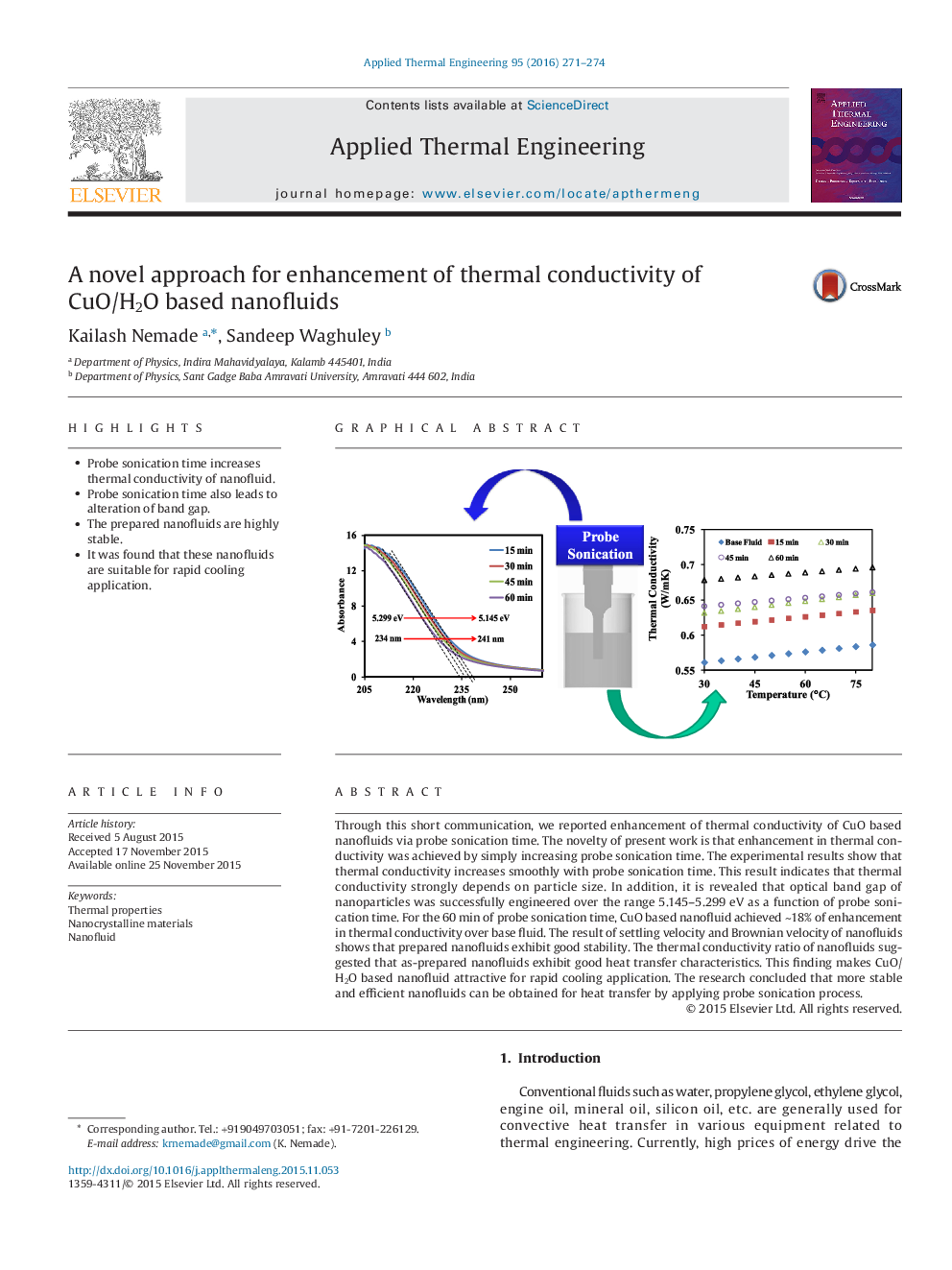| کد مقاله | کد نشریه | سال انتشار | مقاله انگلیسی | نسخه تمام متن |
|---|---|---|---|---|
| 645173 | 1457133 | 2016 | 4 صفحه PDF | دانلود رایگان |
• Probe sonication time increases thermal conductivity of nanofluid.
• Probe sonication time also leads to alteration of band gap.
• The prepared nanofluids are highly stable.
• It was found that these nanofluids are suitable for rapid cooling application.
Through this short communication, we reported enhancement of thermal conductivity of CuO based nanofluids via probe sonication time. The novelty of present work is that enhancement in thermal conductivity was achieved by simply increasing probe sonication time. The experimental results show that thermal conductivity increases smoothly with probe sonication time. This result indicates that thermal conductivity strongly depends on particle size. In addition, it is revealed that optical band gap of nanoparticles was successfully engineered over the range 5.145–5.299 eV as a function of probe sonication time. For the 60 min of probe sonication time, CuO based nanofluid achieved ~18% of enhancement in thermal conductivity over base fluid. The result of settling velocity and Brownian velocity of nanofluids shows that prepared nanofluids exhibit good stability. The thermal conductivity ratio of nanofluids suggested that as-prepared nanofluids exhibit good heat transfer characteristics. This finding makes CuO/H2O based nanofluid attractive for rapid cooling application. The research concluded that more stable and efficient nanofluids can be obtained for heat transfer by applying probe sonication process.
Graphical AbstractFigure optionsDownload as PowerPoint slide
Journal: Applied Thermal Engineering - Volume 95, 25 February 2016, Pages 271–274
